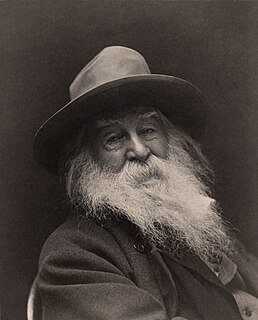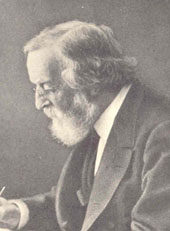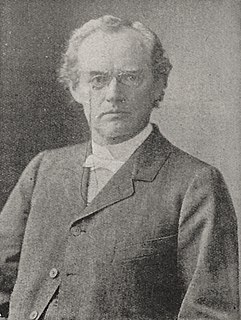

William Howe Cuyler Hosmer or William H. C. Hosmer (May 25, 1814 - May 23, 1877) was a poet from the United States.
Contents
He was a cousin of sculptor Harriet Hosmer and tragic actress Jean Hosmer. [1]


William Howe Cuyler Hosmer or William H. C. Hosmer (May 25, 1814 - May 23, 1877) was a poet from the United States.
He was a cousin of sculptor Harriet Hosmer and tragic actress Jean Hosmer. [1]
Hosmer was born in Avon, New York, as the son of lawyer George Hosmer. He graduated at the University of Vermont in 1841, studied law, and became a master in chancery at Avon. In 1854, he was appointed clerk in the New York City Custom House. He was a student of the character and lore of the Native Americans in the United States, and traveled extensively among the tribes of Florida and Wisconsin.
Hosmer's lengthy narrative poem Yonnondio, or the Warriors of Genesee may have inspired or informed a short poem of the same name by Walt Whitman. [2]
This article needs additional citations for verification .(September 2018) |

Walter Whitman was an American poet, essayist and journalist. A humanist, he was a part of the transition between transcendentalism and realism, incorporating both views in his works. Whitman is among the most influential poets in the American canon, often called the father of free verse. His work was controversial in its time, particularly his 1855 poetry collection Leaves of Grass, which was described as obscene for its overt sensuality. Whitman's own life came under scrutiny for his presumed homosexuality.

Henry Wadsworth Longfellow was an American poet and educator whose works include "Paul Revere's Ride", The Song of Hiawatha, and Evangeline. He was the first American to translate Dante Alighieri's Divine Comedy and was one of the fireside poets from New England.

Leaves of Grass is a poetry collection by American poet Walt Whitman. Though it was first published in 1855, Whitman spent most of his professional life writing and rewriting Leaves of Grass, revising it multiple times until his death. There have been held to be either six or nine individual editions of Leaves of Grass, the count varying depending on how they are distinguished. This resulted in vastly different editions over four decades—the first edition being a small book of twelve poems, and the last, a compilation of over 400.

Moncure Daniel Conway was an American abolitionist minister. At various times Methodist, Unitarian, and a Freethinker, the radical writer descended from patriotic and patrician families of Virginia and Maryland but spent most of the final four decades of his life abroad in England and France, where he wrote biographies of Edmund Randolph, Nathaniel Hawthorne and Thomas Paine and his own autobiography. He led freethinkers in London's South Place Chapel, now Conway Hall.

Avon is a town in Livingston County, New York, United States. It is south of Rochester. The town population was 7,146 at the 2010 census. The town was named after the River Avon in England. The village of Avon is in the northwest part of the town.

Bayard Taylor was an American poet, literary critic, translator, travel author, and diplomat. As a poet, he was very popular, with a crowd of more than 4,000 attending a poetry reading once, which was a record that stood for 85 years. His travelogues were popular in both the United States and Great Britain. He served in diplomatic posts in Russia and Prussia.

Richard Watson Gilder was an American poet and editor.

John Burroughs was an American naturalist and nature essayist, active in the conservation movement in the United States. The first of his essay collections was Wake-Robin in 1871.

James Freeman Clarke was an American theologian and author.

"O Captain! My Captain!" is an extended metaphor poem written by Walt Whitman in 1865 about the death of U.S. president Abraham Lincoln. Well received upon publication, the poem was Whitman's first to be anthologized and the most popular during his lifetime. Together with "When Lilacs Last in the Dooryard Bloom'd", "Hush'd Be the Camps To-day", and "This Dust was Once the Man", it is one of four poems written by Whitman about the death of Lincoln.

"When Lilacs Last in the Dooryard Bloom'd" is a long poem written by American poet Walt Whitman (1819–1892) as an elegy to President Abraham Lincoln. It was written in the summer of 1865 during a period of profound national mourning in the aftermath of the president's assassination on April 14 earlier that year.

John Hall Wheelock was an American poet. He was a descendant of Eleazar Wheelock, founder of Dartmouth College. The son of William Efner Wheelock and Emily Charlotte Hall, John Hall Wheelock was born in Far Rockaway, New York, and brought up in the neighborhood now occupied by Rockefeller Center. He summered in a family home on Long Island's South Fork, which provided inspiration for much of his work.

William Winter was an American dramatic critic and author.

Sarah Helen Power Whitman was an American poet, essayist, transcendentalist, spiritualist and a romantic interest of Edgar Allan Poe.
Nathan Haskell Dole was an American editor, translator, and author. A writer and journalist in Philadelphia, New York, and Boston, he translated many of the works of Leo Tolstoy and books of other Russians; novels of the Spaniard Armando Palacio Valdés (1886–90); a variety of works from the French and Italian.
Eliza Lee Cabot Follen was an American writer, editor, and abolitionist. In her early life, she contributed various pieces of prose and poetry to papers and magazines. In 1828, she married Prof. Charles Follen, who died on board the Lexington in 1840. During her married life, she published a variety of popular and useful books, all of which were characterized by her Christian piety. Among the works she gave to the press are, Selections from Fénelon, The Well-spent Hour, Words of Truth, The Sceptic, Married Life, Little Songs, Poems, Life of Charles Follen, Twilight Stories, Second Series of Little Songs, as well as a compilation of Home Dramas, and German Fairy Tales. Holding an interest in the religious instruction of the young, she edited, in 1829, the Christian Teacher's Manual, and, from 1843 to 1850, the Child's Friend. She died in Brookline, Massachusetts in 1860.

Karl Knortz was a German-American author.

Count Adam Gurowski was a Polish-born author who emigrated to the United States in 1849.

James Kendall Hosmer was an American (Union) soldier during the American Civil War, a pastor, library director, historian, author and a professor of history and literature. Members of the Hosmer family fought in the French and Indian War, American Revolution and the Civil War. As a pastor of the First Church in Deerfield, Massachusetts he left the ministry, feeling duty bound to join the U.S. Army to serve in the Civil War, insisting to serve at the front, where he participated in several major campaigns. As an author and historian he later wrote and published several works about and involving the Civil War and how he viewed the cause of both the North and South. He also authored a number of other works relating to early American history, along with several novels and a fair number of poems. Hosmer also reviewed and published accounts about the Lewis and Clark expedition at a time when full accounts of the expedition were very few in number and out of print. During his career he corresponded with many prominent writers and historians involving his works. In his latter life he held several prominent positions in various literary associations, including his position as president of the American Library Association.
George Hosmer was a U.S. lawyer and politician.
| Wikimedia Commons has media related to William Howe Cuyler Hosmer . |